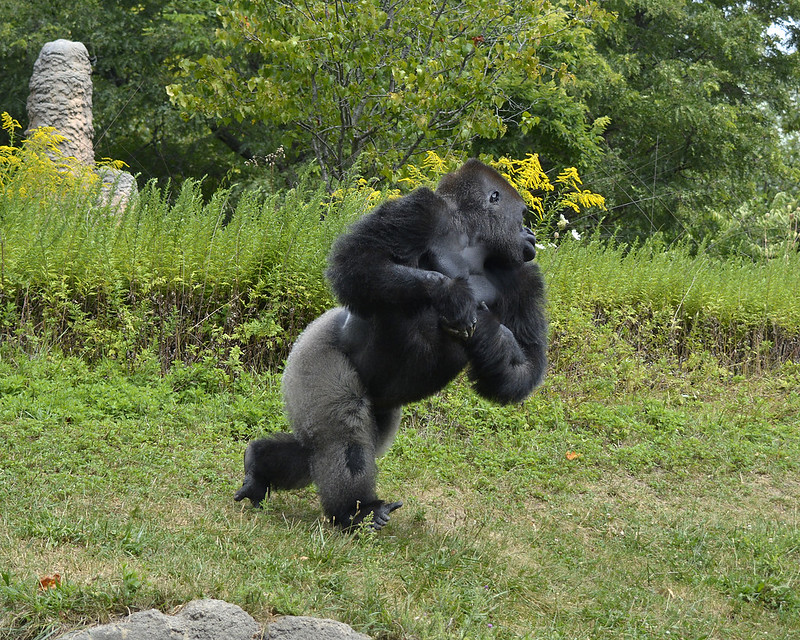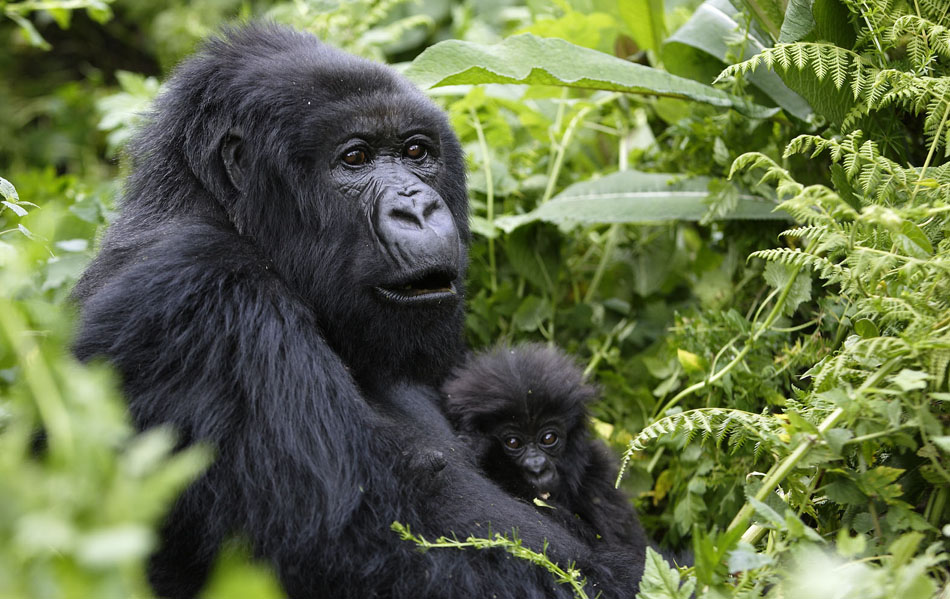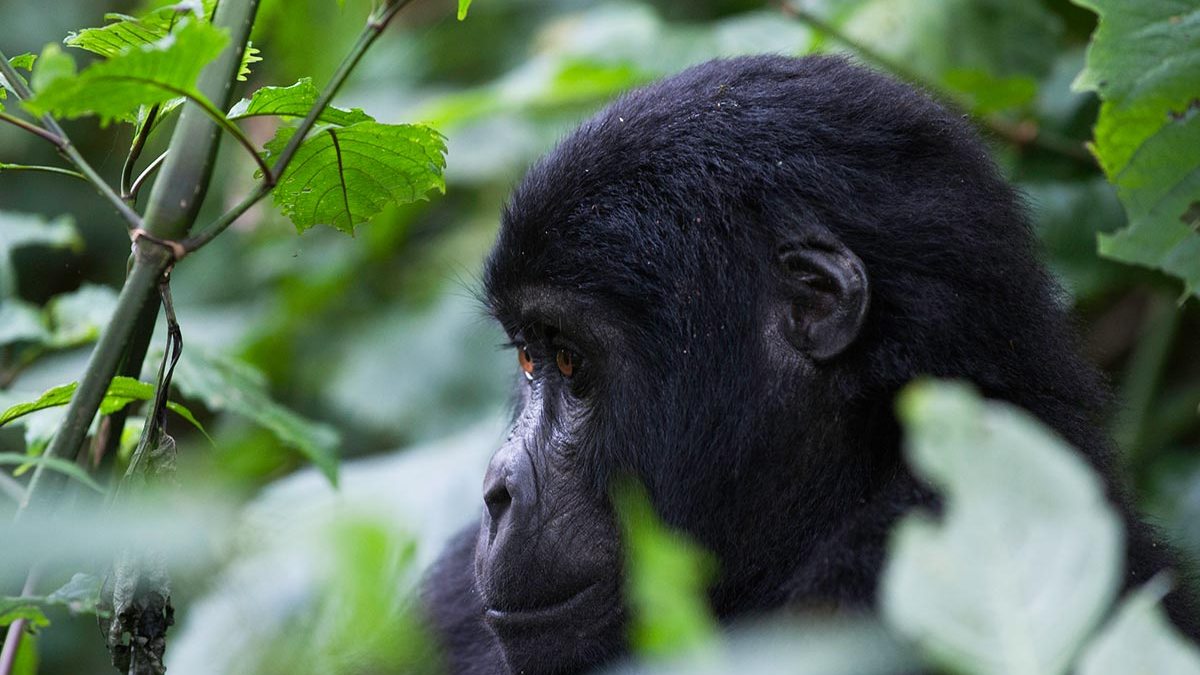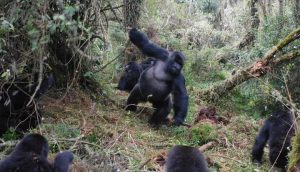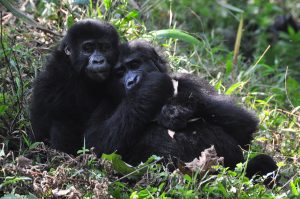Why Do Mountain Gorillas Beat Their Chests?
Why Do Mountain Gorillas Beat Their Chests? Mountain Gorilla chest-beating behavior was popularized in films like King Kong, but little is said or known by scientists on why these Giant Apes perform this rumbling display. While the film is fictional, the essence is that it brings out some of the unusual behavior of Great Apes in their natural habitat, such as chest-beating.
For some visitors, watching mountain gorillas beating their chests is an incredibly breathtaking display while for others, it is a bit terrifying. Surprisingly, Silverback’s exuberant chest beats sometimes indicate signal aggression, while research also indicates prevention of violence between these Great Apes, which can weigh up to 200 kilograms. Generally, mountain gorillas live within hand-in-glove families led by Silverbacks, whose dominance and Authority are challenged all the time by other subordinate silverbacks or lone males. By displaying their massive sizes, unbeaten mating status as well as the unchallenged fighting ability through loud sounds that can be heard in far distances through the dense rainforest, the silverback gorillas are trying to prove to their would-be rivals that they should re-think their decision before even beginning a brawl.
To have a clear understanding of this behavior, a number of scientists including Edward Wright (a Primatologist in Max Planck Institute for Evolutionary Anthropology) launched studies at Volcanoes National Park, within North-western Rwanda. It was discovered that the larger mountain gorillas make lower frequency chest beats than their smaller counterparts. Interestingly, even subordinate males, females, and baby gorillas also beat their chests. As a matter of fact, it was discovered that on average, every male gorilla beats his chest an average of 1.6 times in ten hours.
However, chest-beating behaviors in movies/films have wrongly portrayed these Great Apes as aggressive. First, the real-life Great Apes don’t beat chests with balled-up fists but instead cup hands thus increasing the sound. Having understood this, we bring you some of the reasons why mountain gorillas beat their chests;
To seduce female gorillas
One of the reasons why male mountain gorillas beat their chests is when females within their care and protections (in the gorilla family) are approaching estrus (heat period), the time they are most prepared for copulation. However, it is unlikely that the silverback will beat drums all day as it is always portrayed in films.
Warning
Generally, mountain gorillas have huge muscles as well as long canine teeth but they rarely undertake physical fights. Studies by Wright indicate that sometimes chest-beating makes it possible for silverbacks to size each other up without being necessarily physical. While it is most likely that the dominant silverback will win the fight, it comes with a lot of risk factors (damage), owing to the big and strong nature of these Great Apes
To the subordinate silverbacks or blackbacks, the sound of the leader’s chest-beating display is a way of discouraging them from making a move. Additionally, the dominant silverback might perceive the bests of the subordinate silverbacks nearby then decide that he is probably too weak to bother with.
Dominance and reproductive success
Studies by Wright also discovered that chest-beating peak frequency coincides with body size, and is surprisingly connected to dominance in the gorilla family as well as reproduction success. For instance, the female gorillas will beat their chests to draw away from other females to nearby gorilla families in form of Siren songs. The female gorillas will also beat their chests during scuffles with other males or when juveniles/or infants are becoming annoying.
Alert other gorillas of potential danger
Chest beating among Mountain gorillas is also a way of alerting other members in the family of any potential danger, especially from lone silverbacks or unhabituated gorillas and predators. This allows them to run to safety as he tries his best to fight and protect them.

